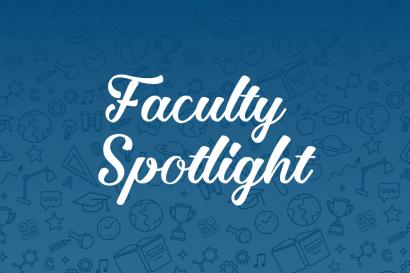
Alejandra Wolff has been a faculty member at IES Abroad Santiago since 2002. She received her B.A. in Art from Pontificia Universidad Católica de Chile and her M.F.A. in Visual Arts from the University of Chile. Outside of teaching at our Santiago Center, Alejandra is an Assistant Professor of Art at Pontificia Universidad Católica de Chile, and she is also a Ph.D. candidate in Literature there. One side of her research explores the relations of art, design, and craft, with an emphasis on contemporary jewelry and textile work; and the other side focuses on Fine Art. As a visual artist and researcher in the field of visual culture, her artwork focuses on the relationships between text, image, and representations of memory and violence in contemporary art in Latin America. Alejandra has participated in a wide range of international and national exhibits, and has published critical articles in several art catalogues and journals.
IES Abroad: What courses can IES Abroad students take with you in Santiago? 
AW: Over the last 14 years, I have taught both Latin American Art and Film courses. I currently teach LT/LS/AH 231: Social and Political Role of the Arts in Chile and Latin America. Within the disciplines of Latin American Studies, Literature, and Art History, the course covers the links between anti-establishment and aesthetic praxis in Latin America since 1930. The part of the course that excites most students is that they get to attend performances and exhibits in both Santiago and Valparaiso.
IES Abroad: How has the changing political landscape in Latin America impacted your course over the last decade?
AW: My course has slightly varied in methodologies and in its contents. I have had to integrate a few manifestations of contemporary art, for current artists incorporate such issues into their works, especially migration and the impact of networks.
IES Abroad: What has been the most interesting question you’ve received from an IES Abroad student in your course? What was your response?
AW: The most relevant question for me, from my perspective is “Why does local art have a political perspective that is so obvious?”
My response would be: Chilean art, as well as Latin American art, have been link to the questions of identity and appropriation. Since our colonization history, an art has developed that looks to rescue local tradition and its relationship with the rest of the world, with its present and the violence of the colonial processes. This has obliged artists to connect with history and other cultural manifestations, such as popular arts. From this perspective, art tends to think its present and to question everyday life.
IES Abroad: What makes Santiago, Chile, a particularly great place to study Art?
AW: Chile is a good place to study art because the schools have specialists with great national and international recognition and are mainly artists. Students can learn from the main source about the processes and circulation during their time in Chile.
 IES Abroad: What is the most important takeaway you hope students studying abroad in Santiago leave their experience with?
IES Abroad: What is the most important takeaway you hope students studying abroad in Santiago leave their experience with?
AW: I would like students to take back a new perception of their own culture, that they understand the relevance of art in the meaning of a society and that they “un-bias” themselves on what it means to be Latin American and what it means to be a U.S. citizen. That they value the symbolic power of art, and that they become interested and critical spectators.
IES Abroad: Your academic research in the visual arts has allowed you to connect with other actors, screenwriters, and writers. How has meeting these change agents impacted both your research and your artwork?
AW: My studies in literature and my experiences as an artist have allowed me to establish a broad collective imaginary of references for the critic and to address contemporary themes that incorporate broader cultural and political issues. Nowadays writers and visual artists share forms and content that has made my research be marked by those crossings.
IES Abroad: What has been your proudest teaching moment or career achievement?
AW: As an artist, I have felt proud with the invitations I receive to participate in international shows. As an academic, my accomplishments are my students. When they attain registering their work in the professional world, and they share with me after years (through emails and letters), thanking me for the critical questions and lectures, as well as my commitment to them.
Study abroad in Santiago for a chance to take Alejandra’s course!

